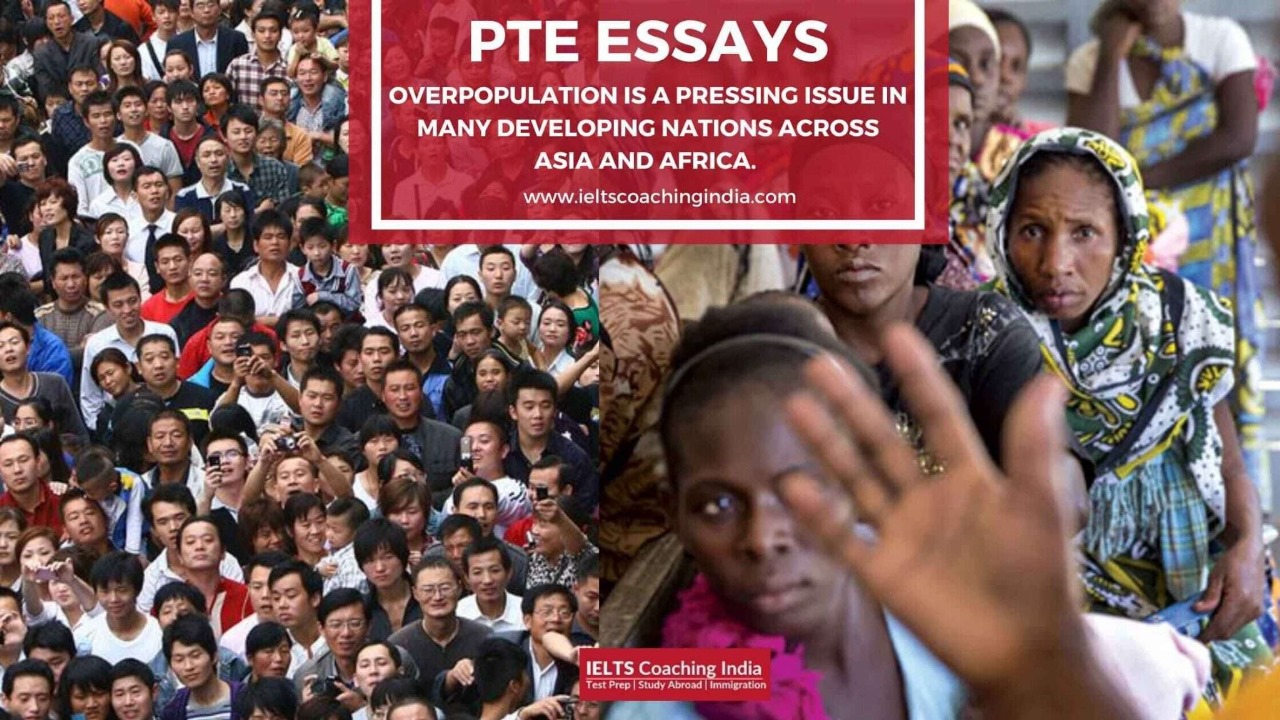Exponential increase in world population especially in countries in the Asian and African continents is a worrying issue. This is likely to pose severe challenges if the situation is not tackled. In my opinion, a pragmatic approach by governments of overpopulated nations in these continents can help to improve the situation.
According to latest data, the population of the world is likely to reach nine billion by the year two-thousand fifty. Nations with more population is mostly concentrated in parts of Asia and Africa. These nations are already breaking at the seams where basic resources are concerned. Fresh water resources as well as food reserves are diminishing at a rapid rate in these nations and is no longer enough to fulfil the needs of it’s citizens. Moreover, housing facilities in overcrowded cities is hardly enough to accommodate the burgeoning population. Further, endemic diseases in such areas are also on the rise which makes the situation more precarious.
To control the rising population in such nations it is imperative that governments of such nations adopt immediate measures. First and foremost is to push the concept of family planning. Authorities concerned should highlight the importance and benefit of having a small family. Also, the world over it has been observed that where the number of educated citizens is more, families are smaller. It is important therefore to promote education in such nations. Also, the government should encourage citizens to conserve resources , like fresh water reserves and fertile farmlands.
To conclude, a focussed approach by governments of such nations is the need of the hour to tackle the problem of overpopulation which is likely to pose a huge problem in the near future.
Overpopulation is an essential problem in developing countries, particularly in Asia and Africa. Rapid growth in population in these countries overburdens the availability of resources, causes environmental degradation, and creates problems in providing people with adequate health, education, and employment facilities. It is possible to solve this problem only by implementing measures related to population control, education, and economic development.
Family planning programs are one of the best solutions to minimize overpopulation. Contraceptives need to be made available and affordable in every area, including rural and underserved regions. Their supply and access will help reduce the number of births through education on small families and the use of contraception. Additionally, more sustainable population growth can be encouraged by providing incentives for families with fewer children, such as financial rewards or access to healthcare.
Education, especially for girls, is an important factor in controlling overpopulation. An educated female is more likely to marry later, have fewer children, and contribute to the workforce, helping break the cycle of poverty and overpopulation. Investing in programs that promote gender equality and provide educational opportunities for girls would result in better-informed family-size decisions.
Economic development is another important factor in curbing overpopulation. As countries develop economically, birth rates tend to fall due to better living standards, healthcare, and greater access to education. Creating employment opportunities and improving infrastructure can reduce poverty—and hence lower population growth rates. In short, urgent action is needed to help control overpopulation in developing nations. Family planning, education for women, economic development, and public awareness campaigns are some of the ways that can be embraced to curb population growth and secure a more sustainable future for these regions.
The significant rise in the population across Asia and Africa’s developing nations is already a pressing issue that must be taken into account in order to imply some population control methods at an earlier stage of their growth. There are several challenges that could potentially present themselves if a viable solution for the population growth is not found.
Developing nations such as Asia and Africa are on a significant track for growth and development as they have many nations which have recently started growing and becoming better with the help of modern technology and as a part of global development. Due to growing infrastructure and better quality of life, the population of these nations has seen a constant increase in population as medical science and technology get better and mortality rates plummet while birth rates rise. An urgent and viable, long-term solution is required before problems not limited to but including food and water scarcity, growing cost of living and unemployment rise become inevitable.
There are many significant methods and policies which have proven to be successful in population management on many occasions across different major nations such as the one child policy in China which helped with population control and management. Nations across Asia and Africa could use policies such as that or have an official discussion with the Government to check on the various possibilities and circumstances that will be favorable and easy to imply in order to make sure the aforementioned issues can be tackled in an effective and immediate manner.
To conclude, measures such as promotion of education and knowledge about the demerits of overpopulation should be informed to all the people in a healthy and orderly fashion as well to make sure everyone is aware.





